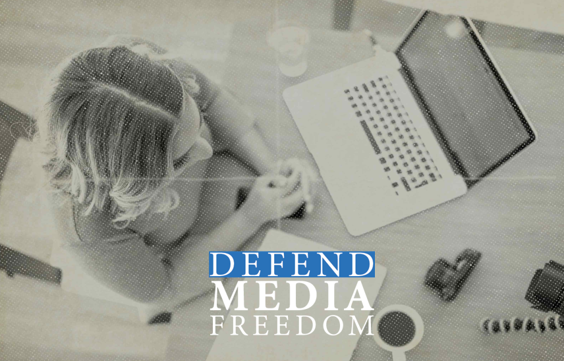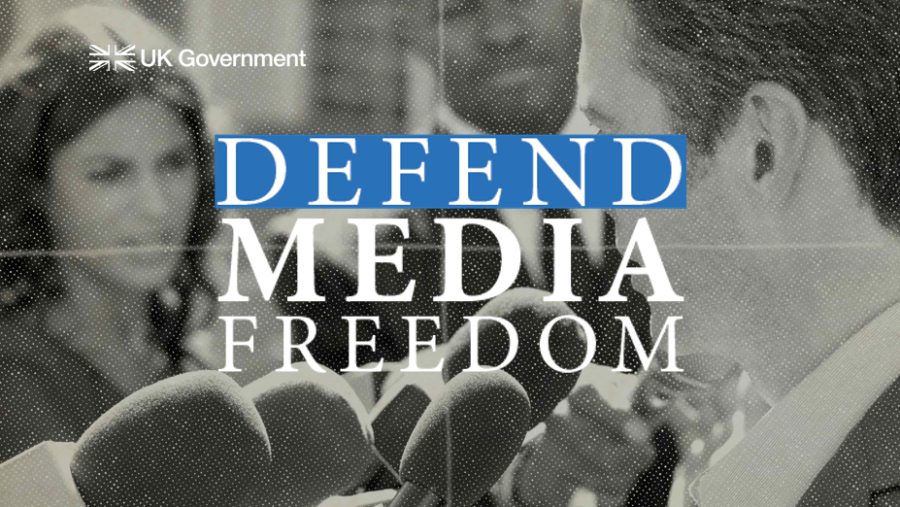15th July 2019 Dublin, Ireland
Media freedom and the protection of female journalists online

Welcome to the first edition of my blog. I intend to use it to share both reflections on important policy issues and some more personal impressions from my experiences here in Dublin and right across the beautiful country of Ireland.
Today, however, I would like to focus on the incredibly important topic of media freedom. We are lucky to live in Ireland, a country passionately committed to freedom and democracy. But the same is not true for all.
I had direct personal experience of living in Communist Poland from 1982 to 1985. I saw at first hand the impact of state control of the press, including censorship. And the remarkable lengths that many brave Poles went to deliver the truth by working with the underground media at the risk of their own liberty. This has made me a passionate advocate for media freedom.
Media freedom is a priority for the British Government too. The Foreign Secretary Jeremy Hunt hosted the highly successful Global Conference for Media Freedom in London last week, in partnership with Canada, which highlighted the diverse range of challenges to media freedom that exist today.
Following the Global Conference for Media Freedom this week, @AmbRobinBarnett will host a Glencairn Conversation on "Online Harrassment of Female Journalists" on July 17, with @EmmaVardyTV @UnaMullally @DearbhailDibs @AllisonMorris1 chaired by @MartinaFitzg🎙️ #DefendMediaFreedom pic.twitter.com/cuDPoP08uf
— British Embassy (@BritEmbDublin) July 12, 2019
2018 was the worst year on record for violence and abuse against journalists. Across the world, the challenges to freedom of expression faced by journalists are many and varied, especially for female reporters and commentators.
Increasingly efforts to silence the voices of journalists, aimed at women or men, are online as well as off. And the threat facing women is doubly serious as they face attacks against their gender, as well as their profession.
In the digital world, social media allows abuse against female journalists to permeate every minute of every day, intrusive and non-stop. According to an Amnesty International report, every 30 seconds, a woman is harassed on Twitter, with female journalists and politicians most often singled out. The same report suggested that 1 in every 14 tweets aimed at UK female journalists is abusive or problematic.
We cannot allow this kind of harassment to prevail and to encourage self-censorship or even a retreat from journalism, creating the risk of an even more male-dominated profession at a time when women are already seriously underrepresented.

We must defend the plurality of media voices and do all we can to ensure the safety of female journalists online. A free press requires women’s voices to be heard loudly and confidently. As the OSCE has said: ‘Protect plurality. Protect female journalists online. It’s our responsibility.’
What is the Embassy here in Dublin doing about this? I am delighted to be hosting a Glencairn Conversation on this issue with an accomplished panel of female journalists from across the island of Ireland, on Wednesday 17 July.
The panel, moderated by Martina Fitzgerald, includes Dearbhail McDonald, Emma Vardy, Una Mullaly and Allison Morris.
I hope that will come up with some ideas for further UK-Ireland collaboration on this crucial issue.
A free press creates free societies so working together is essential.
For more information and coverage of our Glencairn Conversation, follow @BritEmbDublin on Twitter.
Thanks for sharing this article, Great Job, kindly share more and updated article and contribute to secure journalists online Job Vacancies